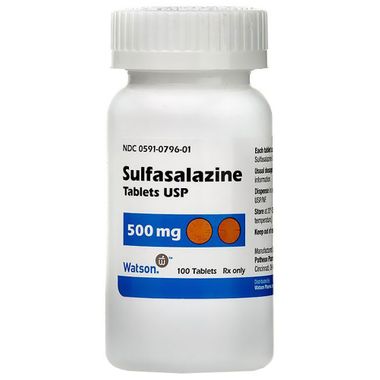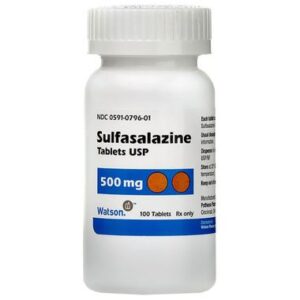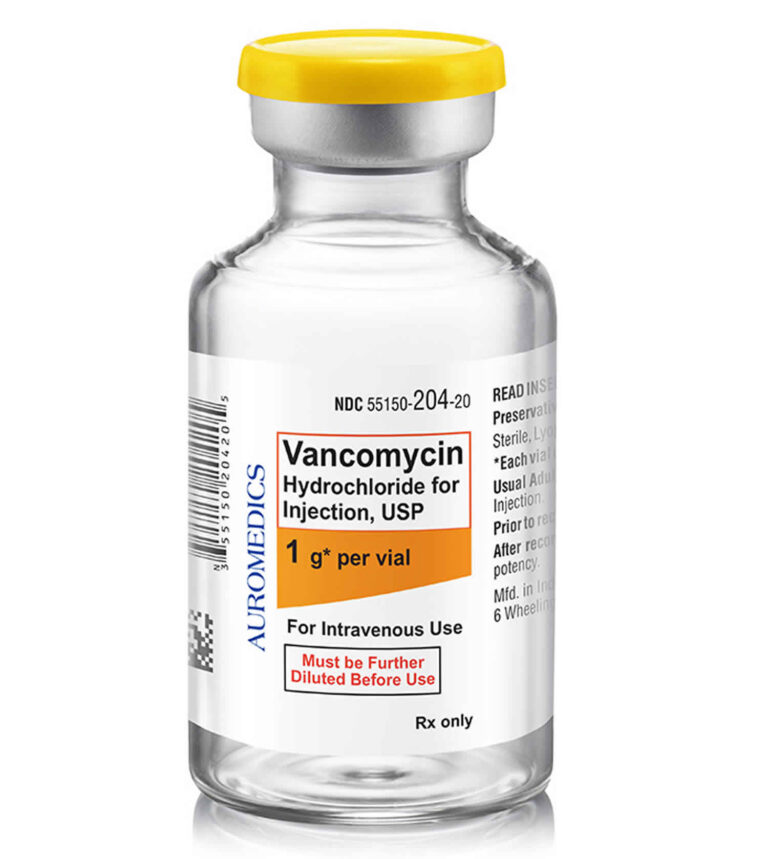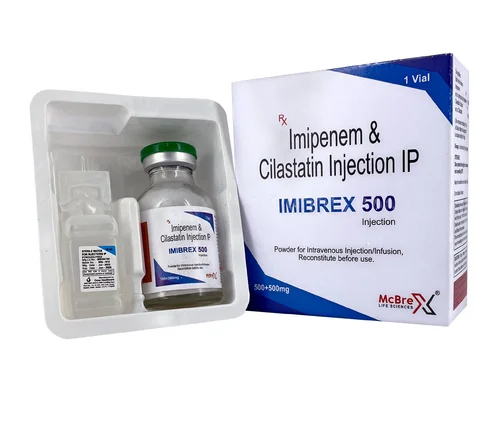
Sulfasalazine is a drug used to treat inflammatory bowel diseases (IBD) and autoimmune disorders. It has both anti-inflammatory and immunosuppressive effects, that make it effective in managing conditions such as ulcerative colitis, rheumatoid arthritis, and Crohn’s disease.
Mechanism of Action
Sulfasalazine is a prodrug because it requires metabolic activation to become effective. Once it is taken orally, it is broken down into the following two active components
- 5-Aminosalicylic Acid (5-ASA) that Reduces inflammation in the colon.
- The second one is Sulfapyridine which affects the immune system, though its exact role is not entirely clear.
These components work collectively to control inflammation and modulate immune responses hence helping to treat various autoimmune and inflammatory conditions.
Indications for Use
Sulfasalazine has uses for the following conditions:
Ulcerative Colitis
It is an inflammatory bowel disease that affects the colon and rectum. Sulfasalazine helps reduce inflammation and manage symptoms associated with ulcerative colitis such as diarrhea and rectal bleeding.
Crohn’s Disease
In Crohn’s disease, there is inflammation in the GIT. Sulfasalazine controls inflammation in the gastrointestinal tract.
Rheumatoid Arthritis
As a disease-modifying anti-rheumatic drug (DMARD), it helps reduce joint inflammation and prevent long-term damage.
Other Autoimmune Conditions
It is administered in conditions like ankylosing spondylitis, psoriatic arthritis, and other inflammatory diseases.
Dosage and Administration
Starting Dose
- For Ulcerative Colitis
The starting dose is 500 mg daily, gradually increasing to 2-4 grams daily based on response.
- Rheumatoid Arthritis
The starting dose is 500 mg per day, increasing to 2-3 grams every day .
Administration Tips
Take with food to minimize gastrointestinal side effects.
Side Effects of Sulfasalazine
Sulfasalazine can cause following side effects,
- Gastrointestinal
Nausea, vomiting, loss of appetite, and abdominal discomfort.
- Allergic Reactions
Skin rashes, itching, or severe reactions like fever or difficulty breathing.
- Blood Disorders
Reduced white blood cells, red blood cells, or platelets (leukopenia, anemia).
- Liver Function Issues
It can increase liver enzymes concentration in some cases.
- Kidney Function
In patients with pre-existing kidney issues, it can cause more complications.
Contraindications
Pregnancy and Breastfeeding
- Pregnancy
Rare chances to harm the fetus as it is classified as a category B drug but care should be taken.
- Breastfeeding
Be cautious as it passes into breast milk.
Allergies
- Avoid if you have a history of allergies to sulfonamides or salicylates (such as aspirin).
Liver and Kidney Disease
- Use with complete care and supervision in individuals with liver or kidney conditions.
Monitoring During Treatment
- Regular blood tests to monitor liver enzymes and blood counts are recommended, especially during the initial stages of therapy.
- Kidney function should also be monitored.
Popular Brand Names of Sulfasalazine
Sulfasalazine has various brand names. Some of popular brand names are given below.
| Brand Name | Manufacturer | Common Uses |
| Azulfidine | Pfizer | Ulcerative colitis, Crohn’s disease, rheumatoid arthritis |
| Salazopyrin | Pharmalex | Ulcerative colitis, rheumatoid arthritis |
| Sulfasalazine | Generic Brands | Inflammatory bowel diseases, rheumatoid arthritis |
| SASP | Various Generic Brands | Ulcerative colitis, Crohn’s disease |
| Disal | Sun Pharmaceutical | Ulcerative colitis, rheumatoid arthritis |
| Sulfazalazine | Cipla | Ulcerative colitis, Crohn’s disease |
Conclusion
Thus, Sulfasalazine is a important medication to manage inflammatory bowel diseases like ulcerative colitis and rheumatoid arthritis. It requires monitoring when used as a therapy for the treatment of above-mentioned conditions.




